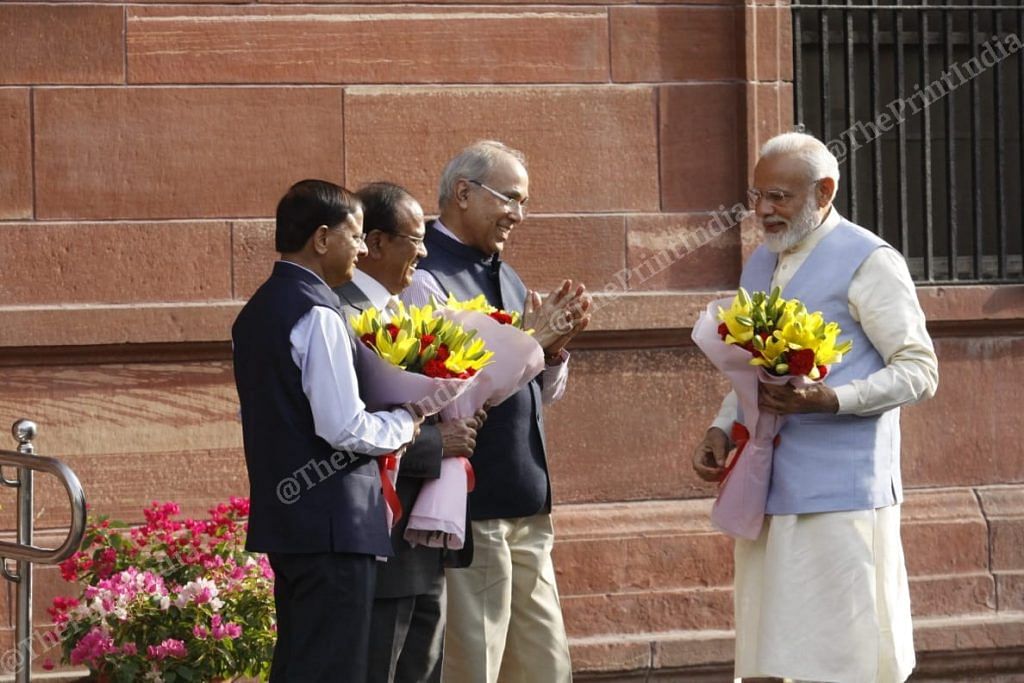New Delhi: Digressing from tradition as well as further empowering the Prime Minister’s Office (PMO), the Narendra Modi-led government Tuesday accorded cabinet rank to Principal Secretary to the PM Nripendra Misra and Additional Principal Secretary P.K. Mishra.
The two were also granted extensions.
With this, both will now be entitled to the perks and allowances available to cabinet ministers and will rank above the junior ministers or ministers of state (MoS) in the hierarchy.
Earlier this month, National Security Advisor Ajit Doval was also given full cabinet rank status after the new Modi government was sworn in.
ThePrint explains the perks and privileges that entail the cabinet rank.
The power
According to the order of precedence, the cabinet ministers rank number seven — after the president, vice-president, prime minister, governors within their respective states, former presidents, deputy prime minister as well as the Lok Sabha speaker and the chief justice of India — with the last two on the same level.
Cabinet ministers fall in the same hierarchy category as chief ministers within their respective states, former prime ministers as well as leaders of opposition in the Lok Sabha and Rajya Sabha.
With their current ranks, both Misra and Mishra would have been much lower in the order of precedence.
Also read: Amit Shah to Jaishankar, first-timers make up one-third of Modi cabinet
The allowances
The perks and entitlements of ministers are determined as per the Salaries and Allowances of Ministers Act of 1952.
Under this, besides a salary, each minister is entitled to a “furnished residence without payment of rent” through his/her term in office and for a period of one month after demitting office, with no charge of maintenance of the house falling on the minister.
Ministers are also entitled to a travel allowance for themselves and their families. This includes the journey to Delhi from their place of residence outside Delhi for assuming office and on relinquishing office as well as travelling and daily allowance “in respect of tours undertaken by him in the discharge of his official duties, whether by sea, land or air”.
With respect to health facilities, a minister as well as his/her family members, get free admission in hospitals maintained by the government as well as free medical treatment.
With both Misra and Mishra already serving as senior government officials, however, much of the perks are available to them. What changes most for these retired IAS officers is the power they will wield and their position in the government’s echelon.
The salaries
Ministers are entitled to the same salaries as Members of Parliament. This figure currently stands at Rs 1 lakh a month. In addition, MPs get constituency allowances, Parliament office allowances as well as Parliament session allowances.
As per Section 3 (2) of the Salaries and Allowances of Ministers Act, 1952, ministers are also entitled to “receive a Constituency Allowance at the same rate” as MPs.
However, ministers do not draw these salaries as MPs under the Member of Parliament Act, but only in equivalence to them.
Currently, both Misra and Mishra draw a gross salary of Rs 1,62,500 a month plus pension.
Also read: Amit Shah is the ‘prime’ minister in Modi cabinet & he hits where it hurts
